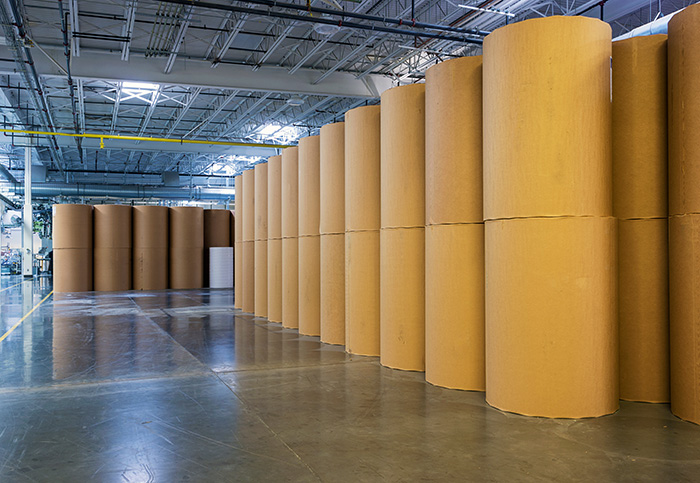Exploring the Pulp Industry in Nigeria: A Look at Wigmore Trading’s Role
Exploring the Pulp Industry in Nigeria: A Look at Wigmore Trading’s Role
Nigeria, known for its rich culture and vibrant economy, is also home to a thriving pulp industry. At the forefront of this dynamic sector is Wigmore Trading, a leading player in the market. Join us as we delve into the world of Nigerian pulp production and distribution, exploring how Wigmore Trading has carved out its niche and revolutionized the industry. From sourcing to supply chain management, we’ll uncover the key role that this innovative company plays in shaping Nigeria’s pulp landscape. Get ready to be inspired by their story of success and impact!
Introduction to the Pulp Industry in Nigeria
Introduction to the Pulp Industry in Nigeria
Nigeria, also known as the “Giant of Africa,” is a country rich in natural resources and has a rapidly growing economy. One of its key industries is the pulp industry, which plays a significant role in driving economic growth and providing employment opportunities for its citizens.
The pulp industry involves the production of wood-based products such as paper, cardboard, and other packaging materials. In Nigeria, this industry has been steadily growing over the years due to an increase in demand for these products both domestically and internationally.
The History of the Pulp Industry in Nigeria
The history of the pulp industry in Nigeria can be traced back to the colonial era when British companies established paper mills to produce newsprint and writing paper. However, with independence came a decline in these mills due to neglect and lack of investment.
In recent years, there has been a resurgence of interest in reviving and expanding the pulp industry. This was primarily driven by government policies aimed at promoting local content development and reducing dependence on imported goods.
Wigmore Trading’s Role
One company that has played a pivotal role in this resurgence is Wigmore Trading Limited. Since its establishment over 20 years ago, Wigmore Trading has been at the forefront of promoting sustainable development through its involvement in various sectors, including agriculture, energy, construction materials, and most notably –the pulp industry.
Through partnerships with local farmers and suppliers, Wigmore Trading has developed an efficient supply chain for sourcing raw materials needed for producing quality paper products. This not only ensures consistent production but also supports local communities by creating job opportunities.
Furthermore, Wigmore Trading’s commitment to sustainability is evident through their use of modern technology and practices that promote responsible forestry management. This ensures that their operations have minimal impact on the environment while meeting international standards for quality production.
Impact on Nigeria’s Economy
The growth of the pulp industry has had a positive impact on Nigeria’s economy. It has not only created employment opportunities but also contributed significantly to the country’s GDP through exports. Additionally, the production of paper products has led to the growth of other industries such as printing and packaging, further enhancing economic development.
The pulp industry in Nigeria is a vital sector that continues to contribute to the country’s economic growth. With companies like Wigmore Trading leading the way, there is great potential for further expansion and development of this industry in Nigeria.
The Importance of Pulp in Various Industries
Pulp is a versatile and essential material that plays a vital role in various industries. It is the fibrous material derived from plant-based sources such as wood, bamboo, and cotton. The pulp industry is a significant contributor to the global economy, with an estimated market value of over $500 billion.
One of the primary uses of pulp is in the papermaking industry. Pulp serves as the main raw material for producing different types of paper, including newsprint, printing paper, tissue paper, and packaging materials. With the increasing demand for paper products due to rapid urbanization and industrialization, the pulp industry has become crucial in meeting this demand.
Apart from its role in paper production, pulp also has significant applications in the textile industry. It can be used to produce viscose or rayon fibers that are widely used in clothing items such as shirts, dresses, scarves, and more. Pulp-based fibers are also popularly used in non-woven fabrics like diapers and sanitary napkins.
The food industry also relies heavily on pulp for different purposes. In fruit juice production, pulp is extracted from fruits such as oranges and apples to add texture and flavor to juices. In addition, it serves as an ingredient in bakery products like bread and cakes to improve their moisture retention properties.
Moreover, the pharmaceutical industry makes use of pulp-derived cellulose as an important component in medicine capsules due to its non-toxic nature and stability under different environmental conditions.
In recent years, there has been a growing trend towards sustainable practices across all industries globally. This shift has led to an increased demand for eco-friendly packaging materials made from biodegradable substances such as recycled pulp or virgin fiber from responsibly managed forests. As such,the importance of sustainable sourcing of raw materials cannot be overstated in today’s business landscape.
Wigmore Trading Company recognizes these changing trends and strives towards promoting sustainability by sourcing high-quality pulp products that align with international standards and regulations. The company is dedicated to providing environmentally-friendly solutions to its clients while also supporting the local pulp industry in Nigeria.
The importance of pulp in various industries cannot be overstated. From paper and textile production to food and pharmaceuticals, pulp plays a critical role in meeting the ever-increasing demand for various products. As we move towards more sustainable practices, it is essential to source high-quality pulp from responsible suppliers like Wigmore Trading Company.
Role of Wigmore Trading in the Supply of Pulp in Nigeria
Challenges Faced by the Pulp Industry in Nigeria
The pulp industry in Nigeria has faced numerous challenges over the years, hindering its growth and development. These challenges have had a significant impact on the industry’s efficiency and productivity, as well as its contribution to the country’s economy.
One of the main challenges faced by the pulp industry in Nigeria is a lack of raw materials. Most pulp manufacturers rely heavily on wood fibers as their primary source of raw material. However, due to deforestation and unsustainable logging practices, there has been a shortage of quality wood fibers in Nigeria. This has led to an increase in prices for these materials, making it difficult for small-scale manufacturers to compete with larger companies.
Another major challenge faced by the pulp industry is inadequate infrastructure. The transportation network in Nigeria is not well-developed, which makes it challenging to move raw materials from one location to another efficiently. This results in delays and increased costs for manufacturers. Additionally, poor road conditions also make it difficult to transport finished products from production sites to markets, further hindering the growth of the industry.
The lack of skilled labor is another significant challenge facing the pulp industry in Nigeria. Most workers in this sector do not possess specialized skills or knowledge related to pulp manufacturing processes, leading to lower productivity levels and higher production costs. This problem could be addressed through proper training programs and collaboration with educational institutions to develop a skilled workforce.
Moreover, frequent power outages also pose a great challenge for pulp industries in Nigeria. The majority of manufacturers rely on electricity supply from the national grid, which is often unreliable due to inadequate maintenance and outdated equipment. As a result, companies are forced to use expensive alternative sources of energy such as generators, increasing their operational costs significantly.
Furthermore, unstable government policies and political instability have also adversely affected the growth of the pulp industry in Nigeria. Constant changes in regulations and policies make it difficult for businesses operating within this sector to plan effectively or make long-term investments.
The pulp industry in Nigeria faces significant challenges that hamper its growth and development. These include a shortage of raw materials, inadequate infrastructure, lack of skilled labor, power outages, and unstable government policies. However, with proper support from the government and collaboration with key stakeholders such as Wigmore Trading Limited, there is hope for the industry to overcome these obstacles and thrive in the future.
Future Outlook for the Pulp Industry in Nigeria
The pulp industry in Nigeria has seen significant growth and development in recent years, driven by the country’s increasing demand for paper products. With a population of over 200 million people and a growing economy, Nigeria is expected to continue its upward trend in the consumption of paper and pulp products.
One major factor contributing to the future outlook for the pulp industry in Nigeria is the government’s commitment to promoting sustainable economic growth. In recent years, there have been various initiatives aimed at boosting local production and reducing dependence on imported goods. This includes efforts to support industries such as pulp manufacturing through tax incentives, funding programs, and policies that promote ease of doing business.
Furthermore, the ongoing diversification of the Nigerian economy away from oil and towards other sectors also presents opportunities for the pulp industry. As more investments are made in agriculture and manufacturing, there will be an increased demand for packaging materials such as paper bags and cartons, which are produced using pulp.
Another key driver of growth for the pulp industry in Nigeria is the rising consumer awareness about environmentally friendly products. With increasing concerns about climate change and environmental degradation, consumers are becoming more conscious of their purchasing decisions. This has led to a growing demand for sustainably sourced paper products made from recycled materials or certified sustainable sources.
Wigmore Trading Company Limited (WTCL) is well-positioned to tap into these emerging trends within the Nigerian market. As one of Nigeria’s leading suppliers of raw materials for paper production, WTCL has developed strong partnerships with local manufacturers who rely on them for high-quality wood chips used in producing pulp.
Moreover, WTCL’s commitment to sustainability aligns with both government policies and consumer preferences. The company ensures that all their wood chips are responsibly sourced from certified forests or through recycling programs. This not only promotes sustainable practices but also supports local communities by creating jobs and income opportunities.
It can be said that the future outlook for the pulp industry in Nigeria is promising. With the government’s support, a diversifying economy, and increasing consumer demand for sustainable products, there are numerous opportunities for growth and development in this sector. As a key player in the Nigerian pulp industry, WTCL is well-equipped to continue driving progress and contributing to the country’s economic growth through its sustainable practices and partnerships with local manufacturers.
Sustainability Efforts and Impact on the Pulp Industry in Nigeria
Sustainability has become a key concern for industries worldwide, including the pulp industry in Nigeria. As one of the largest producers and consumers of pulp and paper products in Africa, Nigeria faces significant environmental and social challenges in maintaining a sustainable supply chain.
Wigmore Trading, as a major player in the Nigerian pulp industry, recognizes its responsibility towards promoting sustainability efforts within the sector. The company has implemented various initiatives to reduce its environmental impact and promote responsible practices throughout its operations.
One notable initiative taken by Wigmore Trading is their commitment to sourcing raw materials from sustainably managed forests. This involves partnering with certified suppliers who practice responsible forestry techniques and adhere to international standards such as the Forest Stewardship Council (FSC). By sourcing materials from sustainable sources, Wigmore Trading ensures that they are not contributing to deforestation or other negative impacts on local ecosystems.
In addition to responsible sourcing, Wigmore Trading also focuses on reducing their energy consumption and carbon footprint. The company has invested in renewable energy sources such as solar panels to power their manufacturing facilities. They have also implemented energy-efficient technologies and processes throughout their production line, resulting in reduced emissions and energy costs.
Another important aspect of sustainability for the pulp industry is waste management. As paper production can generate significant amounts of waste, proper disposal methods are crucial to prevent pollution and land degradation. To address this issue, Wigmore Trading has established a comprehensive waste management system that includes recycling programs for both internal waste generated during production as well as post-consumer waste from their products.
Moreover, Wigmore Trading takes social responsibility seriously by actively engaging with local communities where they operate. This includes providing employment opportunities, supporting educational initiatives, and investing in community development projects aimed at improving living standards for locals.
The sustainability efforts undertaken by Wigmore Trading have had a positive impact not only on the company but also on the wider Nigerian society. By promoting responsible practices within the pulp industry, they contribute towards preserving the environment and supporting sustainable economic growth.
Sustainability is a crucial aspect of the pulp industry in Nigeria, and Wigmore Trading has demonstrated its commitment to this cause through various initiatives. By striving towards more responsible practices, the company is setting an example for others in the industry to follow and contributing towards a more sustainable future for Nigeria.
Conclusion: The Role of Wigmore Trading in Shaping the Pulp Industry in Nigeria.
Conclusion: The Role of Wigmore Trading in Shaping the Pulp Industry in Nigeria
It is evident that Wigmore Trading has played a significant role in shaping the pulp industry in Nigeria. From its humble beginnings as a small trading company to becoming one of the largest distributors of paper and pulp products in the country, Wigmore Trading has continuously strived to improve and innovate in order to meet the growing demands of the Nigerian market.
One of the key contributions of Wigmore Trading to the pulp industry is its commitment to quality. With their strict quality control measures and partnerships with reputable international suppliers, they have been able to provide top-notch paper and pulp products that meet both local and international standards. This has not only improved customer satisfaction but also helped raise the overall quality standards within the industry.
Additionally, through its extensive distribution network, Wigmore Trading has been able to make paper and pulp products more accessible to various regions within Nigeria. This has not only increased convenience for customers but also promoted economic growth by creating job opportunities for locals.
Moreover, as an environmentally conscious company, Wigmore Trading has actively promoted sustainable practices within the industry. They have invested in eco-friendly production methods and partnered with manufacturers who adhere to responsible sourcing and production processes. This commitment towards sustainability not only benefits the environment but also contributes towards building a positive image for Nigeria’s pulp industry on a global scale.
Furthermore, Wigmore Trading’s involvement in community development initiatives has had a significant impact on local communities where their operations are based. Through various corporate social responsibility programs such as education scholarships and infrastructure development projects, they have positively impacted many lives while also fostering better relationships between businesses and communities.
It is safe to say that without Wigmore Trading’s presence in Nigeria’s pulp industry, it would not have seen such remarkable growth over recent years. Their unwavering dedication towards excellence, sustainability, and community development sets an example for other companies to follow and has truly made them a key player in shaping the future of the pulp industry in Nigeria.








Comments are closed.